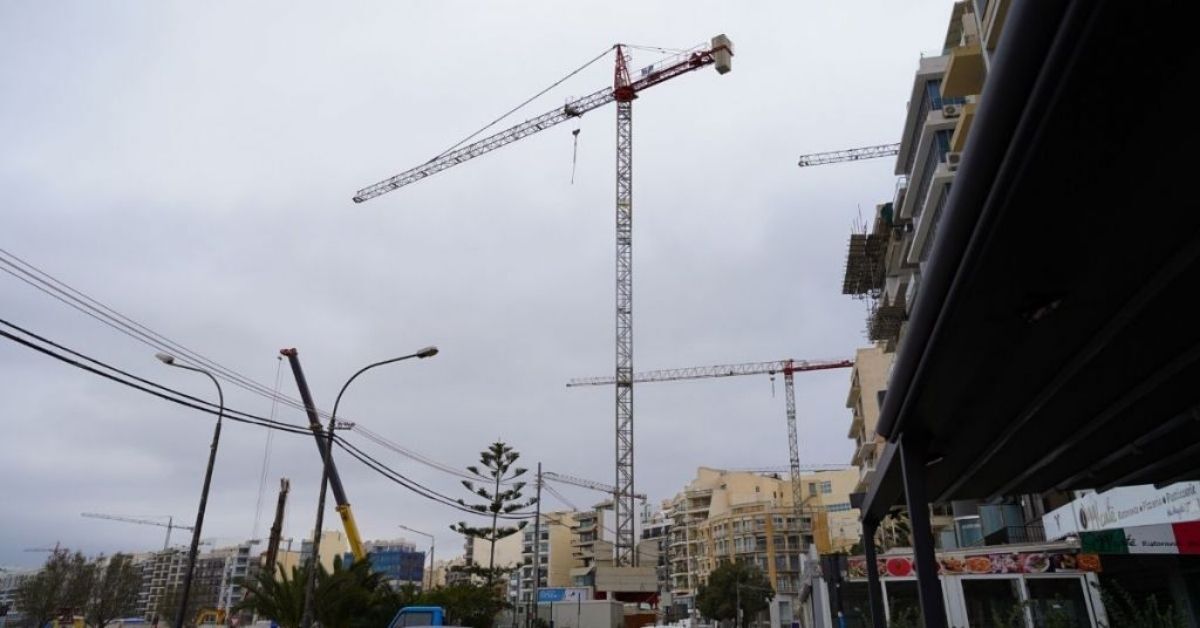Environmental NGOs and other people appealing against appalling development permits granted by the Planning Authority are finding the process increasingly rejecting and stultifying as the buildings rise and become facts on the ground even before the appeal is decided.
The reports come amid Lovin Malta’s launch of The Planning Web, an interactive map designed to make planning applications open and transparent.
When appeals are filed with the Environment and Planning Tribunal, most appellants simultaneously request suspension of the works until the appeal is decided.
Yet the tribunal tends to grant requests for stay of the execution of the permit in some cases only, particularly in cases involving cultural heritage or protected environmental zones. It rejects most requests.
The tribunal’s rejection is typically based on the reasoning that the appellant’s reasons for suspension “cannot be considered as a form of disproportionate damage or if such works are not suspended these could amount to prejudice” for the appellant.
The law, although poorly written, provides that the tribunal has to be satisfied that not suspending the works would cause “disproportionate prejudice” to the appellant in comparison to allowing the works to proceed.
NGOs maintain that a building that would be completed or substantially built by the time the appeal is decided does amount to disproportionate prejudice to their position.
Yet the tribunal also typically argues that the appellants can opt for other remedies in the civil courts.
An alternative remedy in the civil court would be to apply for a warrant of prohibitory injunction, but civil procedural law places a higher bar on suspension of works than the law that regulates the tribunal. While the tribunal can suspend the works if the prejudice is “disproportionate”, in civil law the damage or prejudice would have to be “irremediable”.
In one recent case reviewed by Lovin Malta, the court rejected a request for a prohibitory injunction for various reasons, including the reasoning that if the tribunal revokes the permit, and the permit-holder fails to “remove all offensive structures, the appellant would have other avenues for solutions even if not as expeditious as he hopes and would cause him to incur additional expenses.”
NGOs who spoke to Lovin Malta said that these judgements offer cold comfort. NGOs and increasingly local councils say that they resort to the tribunal in the hope of overturning bad or hasty decisions by the planning boards, and the idea of getting caught up in lengthy and costly proceedings in different courts – in the tribunal, civil courts – is unfeasible.
A planning source said that another complication is that the authority’s contentious and contestable decisions have increased the number of appeals.
This has in turn made it less likely for the tribunal to grant requests to suspend works because if it grants such suspension it would then have to decide on the appeal within three months to keep within the time-terms of the law.
The law specifies that the suspension automatically expires after three months, and the permit-holder would then be free to commence with the construction. The current caseload of the tribunal makes the three months window for deciding appeals unachievable in most cases.
“The planning boards,” the planner said, “also tend to give short shrift to points of law in the granting of a development permit. And this gives objectors the idea that they can resort to the tribunal where points of law are given greater traction. But the decisions of the tribunal are inconsistent in their own ways. It’s not easy to assess what would prevail and what would fail in front of the tribunal.”
What do you think of the issue?


Recent Comments